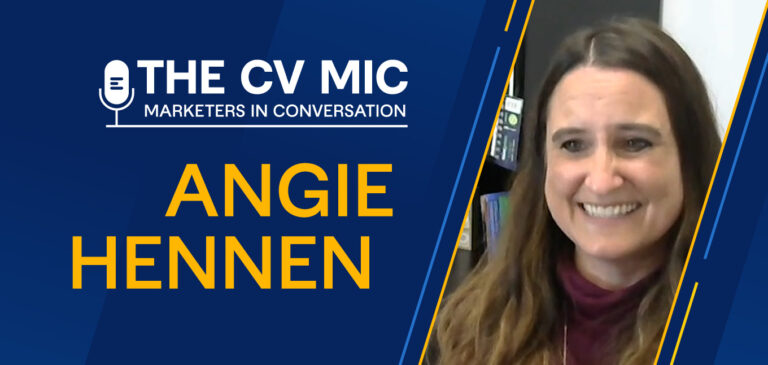As a writer, content marketer, or business owner, you’re constantly judged by the words you use.
This is true whether it’s emails, marketing copy, blog posts, presentations, pitches, or social media copy.
That’s why it’s important to know grammar basics.
Since 1981, Weird Al’s been pushing out albums left and right, covering popular songs with his own lyrics as parody. A favorite, “Word Crimes,” written against the backdrop of “Blurred Lines” by Robin Thicke, is a fun finger-shamer on the common mistakes people make when speaking and writing.
It’s a pretty good review of the basics, so we’ve indexed them here in an expanded recap for quick reference.
Tips to Avoid Committing a Word Crime
1. Conjugations
If English is your first language, you may have never learned how to conjugate verbs on paper, at least not on purpose. Check out this Grammarly resource if you need a visual. If it’s your second language, or you learned how to conjugate verbs in another language, you understand the set up. Even if you don’t think about it, you might still get tripped up. Laid or lay? Swam or swum? Sprang or sprung? Memorize them or print yourself a cheat sheet for the hard ones.
Also, please never refer to yourself in the third person.
2. Nomenclature
Just because you use them every day, doesn’t mean you could pass your fifth-grade language arts test. You might use nouns and prepositions every day but you certainly don’t have to diagram sentences on the regular. Need a refresher? Turn back to the classic ‘Schoolhouse Rock’ episodes. You’ll have them stuck in your head in no time. (Conjunction junction, what’s your function?…)
3. Basics
We use them all the time but half the time we’re not really sure if they’re right or not. Here’s a quick reference.
More than or over?
- More than relates to amount. Over relates to space.
- YES: More than 90 percent or over my dead body.
- NO: Over 90 percent or more than my dead body.
Fewer or less or under?
- Fewer refers to something concrete and countable. Less than works with an idea or something abstract. Under relates to space.
- YES: There are fewer than 5 people at this party, one person under the table and there is less love for me in here than outside.
- NO: There are under 5 people at this party, one person less the table and there is fewer love for me in here than outside.
Further or farther?
- Further is an abstract distance. Farther is physical distance.
- YES: A few miles farther (physical distance) up the coast, Jim is much further (abstract distance) along in earning his degree.
Towards or toward?
- Ditch the S at the end — toward, backward, upward, afterward — unless you’re feeling British.
4. Expressions
Humans fill in what they want when it comes to expressions.
Ever say “intensive purposes” or “right off the back”? These might sound right to your ear but you are incorrect. (It’s intents and purposes and right of the bat.) Buzzfeed presents some common phrases you’ve been saying wrong.
Where do you fall on the caring less spectrum?
- I could care less means you can actually take another step in the direction of not caring. You are not fully committed to being careless yet.
- I couldn’t care less would mean you have reached the furthest point on the I-do-not-care meter.
- I couldn’t care less also means you care less than if you said, “I could care less.”
5. Pronouns
It’s ok to use they when referring to a singular person now, and it sure beats constantly using he/she. The Associated Press reports that it (they?) no longer care that verbs agree in gender and number, at least on a limited basis. Do what you want but know it will still drive some editors crazy.
6. Contractions and conjunctions
A contraction is when an apostrophe stands in for a missing letter or two.
Can not = Can’t
Do not = Don’t
It is = It’s
A conjunction is a word like but, and, like and nor.
This gets confusing because apostrophes are also used to signal a possessive — like women’s group and Ashley’s party. The contraction it’s is never possessive. If you want to make it possessive, drop the apostrophe.
7. Common misspellings
This Oatmeal comic is very useful.
The basics: There is no X in espresso. Affect is usually a verb. Effect is usually a noun. Depend on spell check for words like inconvenient, conscientious and apostrophe. Don’t swap a C for a K to be cute. Krazy and kool give this editor panic attacks.
8. Dangling participles
Dangling participles aren’t something you have to deal with at the office … unless you’re Pam Beesley from The Office. And frankly, if you dangle a participle in an email accidentally, most people won’t even notice, unless you do it how Michael Scott did it.
Here’s a quick guide to the difference between dangling participles and dangling modifiers and how to spot them.
9. Oxford comma
Some editors say: “Yes. Always. Use. Oxford. Commas. For. Everything. Comma. Comma. Comma!”
Some editors say: “Never. Use. Oxford. Commas. For. Anything.”
Some editors say: “Use Oxfords only when clarity is needed.”
There is no right or wrong answer, and every organization, newspaper, and publishing company will have its own preference. The most important thing is consistency. And also having an opinion about it. Obviously.
10. Internet talk
Unless you’re limited by character count, letters in the place of words make you look like your third-grader. “What R U going 2 B for Halloween?” Please don’t. Also, if there is anything we have learned from the last 15 years of social media, it is that the stuff on the internet lives forever.
11. Homophones
Homophones are words that sound the same but are spelled differently and mean different things. Examples include: to, two, and too; hear and here; there, their and they’re.
You’re an adult and you should definitely memorize these for the sake of your daily emails and texts. For the slightly harder ones, consider this list.
And then consider how ridiculous these look when you imagine these phrases: peace of mind versus piece of mind, or right to bear arms versus right to bare arms.
12. Diagraming a sentence
You will literally never have to do this as an adult unless you become an English teacher. I’ll bet even Weird Al’s never had to do this since high school. Please don’t make me do it.
13. To whom/who
Use to whom if you intentionally want to sound pretentious. And also when an action is directed at a person.
To whom should I mail this letter? for example.
Use who when there isn’t an action involved. Who is at the door?
14. Quotation marks
Quotation marks are never used for emphasis. Unless you are Joey Tribbiani.
Use quotation marks to signify someone is talking or to note names of songs, plays, and other composition titles, as suggested by AP.
Single quotations are used when you’re quoting someone within a quote. They’ve never used to signify thoughts.
15. Good or well
Good describes a noun, well describes a verb. Grammarly says so.
It’s really that easy.
Did you do well on your test? [Well is referring to DO (verb).]
Your face looks good. [Good is referring to FACE (noun)]
16. Irony or coincidence
Since we’re on a 1990s pop culture kick, consider Alanis Morissette’s song “Ironic.” Everything in this song is a coincidence not irony: rain on your wedding day, a free ride when you’ve already paid, good advice you didn’t take… 10,000 spoons when all you need is knife.
You can use the song as your guide.
17. Figurative or literal
Literal means it is actually happening. It’s not metaphorical or hypothetical.
No matter how sad you are, you did not literally cry your heart out. And I hope he didn’t literally scare the crap out of you.
Word Crimes happen every day…
Don’t let word crimes stop your content from being effective with your audience. Combine this guide with the proper proofreading tools to ensure your content quality is at the highest level. And if you want to take it a step further, ClearVoice is here to help. Our expert content writers and copy editors can help you produce top-tier content that helps you rise above the rest of the competition.






